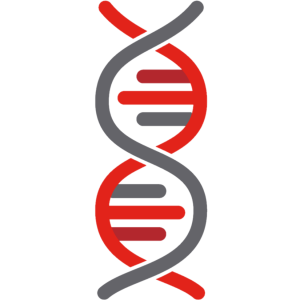8.1 Understanding Academic Integrity and APA Citations
Reflective Practice
- What is Academic Integrity and academic honesty?
- Why is understanding the Academic Integrity Policy so important as a college student?

Academic Integrity and Dishonesty
At most educational institutions, “academic integrity” means demonstrating and upholding the highest integrity and honesty in all the academic work that you do. In short, it means doing your own work and not cheating, and not presenting the work of others as your own.
The following are some common forms of academic dishonesty prohibited by most academic institutions: Refer to the college’s Maintaining Academic Integrity website.
Cheating
Cheating can take the form of looking over someone’s shoulder during an exam, or any forbidden sharing of information between students regarding an exam or exercise.
Deception
Deception is providing false information to an instructor concerning an academic assignment. Examples of this include giving a dishonest excuse when asking for a deadline extension, or falsely claiming to have submitted work.
Fabrication
Fabrication is the falsification of data, information, or citations in an academic assignment. This includes making up citations to back up arguments or inventing quotations.
Plagiarism
Plagiarism, as defined in the 1995 Random House Compact Unabridged Dictionary, is the “use or close imitation of the language and thoughts of another author and the representation of them as one’s own original work” (Emory University, 2022, para. 4). In an academic setting, it is seen as the adoption or reproduction of original intellectual creations (such as concepts, ideas, methods, pieces of information or expressions, etc.) of another author (whether an individual, group, or organization) without proper acknowledgement. This can range from borrowing a particular phrase or sentence to paraphrasing someone else’s original idea without citing it. Today, in our networked digital world, the most common form of plagiarism is copying and pasting online material without crediting the source.
Video: Plagiarism
Video: “Plagiarism and You” by The Learning Portal [5:40] Transcript Available.
Common Forms of Plagiarism
According to “The Reality and Solution of College Plagiarism” created by the Health Informatics department of the University of Illinois at Chicago (n.d.), there are ten main forms of plagiarism that students commit:
- Submitting someone else’s work as their own.
- Taking passages from their own previous work without adding citations.
- Rewriting someone’s work without properly citing sources.
- Using quotations, but not citing the source.
- Interweaving various sources together in the work without citing.
- Citing some, but not all passages that should be cited.
- Melding together cited and uncited sections of the piece.
- Providing proper citations, but failing to change the structure and wording of the borrowed ideas enough.
- Inaccurately citing the source.
- Relying too heavily on other people’s work. Failing to bring original thought into the text.
As a college student, you are now a member of a scholarly community that values other people’s ideas. In fact, you will routinely be asked to reference and discuss other people’s thoughts and writing in the course of producing your own work. That’s why it’s so important to understand what plagiarism is and steps you can take to avoid it.
Avoiding Plagiarism
Below are some useful guidelines to help you avoid plagiarism and show academic honesty in your work:
- Quotes: If you quote another work directly in your work, cite your source.
- Paraphrase: If put someone else’s idea into your own words, you still need to cite the author.
- Visual Materials: If you cite statistics, graphs, or charts from a study, cite the source. Keep in mind that if you didn’t do the original research, then you need to credit the person(s) or institution, etc. that did.
The easiest way to make sure you don’t accidentally plagiarize someone else’s work is by taking careful notes as you research. If you are doing research on the Web, be sure to copy and paste the links into your notes so can keep track of the sites you’re visiting. Be sure to list all the sources you consult.
Lastly, if you’re in doubt about whether something constitutes plagiarism, cite the source or leave the material out. Better still, ask for help. Use the college’s Library Learning Commons APA Citation Guide to learn more about APA citation. Taking the time to seek advice is better than getting in trouble for not attributing your sources. Be honest about your ideas, and give credit where it’s due.
Consequences of Plagiarism
In the academic world, plagiarism by students is usually considered a very serious offence that can result in punishments such as a failing grade on the particular assignment, the entire course, or even being expelled from the institution. Individual instructors and courses may have their own policies regarding academic honesty and plagiarism; statements of these can usually be found in the course syllabus or online course description.
 Activity
Activity
Strengthen your understanding by participating in the following self paced activity.
APA Citation
Welcome to Fanshawe’s Library Learning Commons APA (American Psychological Association) Style Guide. Access the resources below to understand how to use the APA citation style accurately.
Overview – APA 7th Edition Citation Guide
Academic Integrity at Fanshawe College
 Knowledge Check
Knowledge Check
Remember:
- Being dishonest can have major consequences that can affect you as a college student and also your life beyond college.
- “Everyone cheats” and “It’s no big deal at my college” cannot justify the act of cheating.
- When you cheat, you are primarily cheating yourself.
“2.4 Understanding Academic Honesty and APA Citations” from Fundamentals for Success in College by Priti Parikh is licensed under a Creative Commons Attribution-NonCommercial-ShareAlike 4.0 International License, except where otherwise noted.

